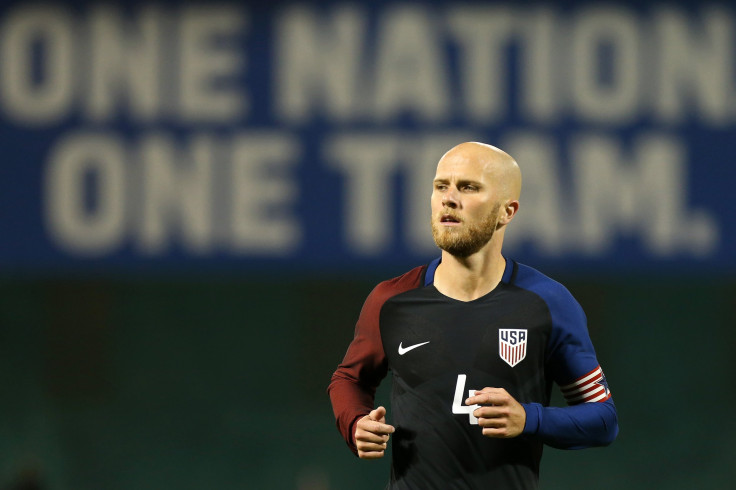USA vs. Mexico Soccer 2016: After Trump Victory, World Cup Qualifier Has Added Layer Of Significance

Already a contest brimming with sporting rivalry, Friday’s World Cup qualifier between the United States and Mexico in Columbus, Ohio, has been given a major extra layer of significance by Donald Trump’s victory in Tuesday’s presidential election.
Mexico, of course, was at the heart of Trump’s campaign. His bid for the White House was launched 17 months ago with a call to build a wall along the entirety of the U.S. border to keep out Mexicans, who, according to the president-elect were “bringing drugs. They’re bringing crime. They’re rapists.”
He has repeated his call for a border wall, which he insists Mexico will pay for, throughout his campaign, while decrying that the country is “killing us” on trade.
It is not the first time Trump has loomed large over a meeting between the two countries on the soccer field. When Mexico and the U.S. clashed in a playoff for the Confederations Cup in October of last year, Mexican television station Azteca used Trump’s words in an ironic way to take a light-hearted jab at the U.S. ahead of the game.
However, now that Trump will have the power of the presidency in just a couple of months’ time, and the opportunity to carry out his call for mass deportation of undocumented immigrants, the time for humor has arguably passed.
The rivalry between the United States and Mexico has a unique place in the soccer world due to the huge number of Mexico supporters living within the U.S. Indeed, in many parts of the U.S., Mexico carries greater support. Such was the case in that meeting 11 months ago, played at the Rose Bowl in Pasadena, California, when Mexico fans greatly outnumbered their U.S. counterparts. It is why the U.S. has chosen to play Friday’s game, as has been the case in the last four World Cup qualifying cycles, in Columbus, Ohio.
Mexico fans will be in the minority at Mapfre Stadium on Friday night in a state that went to Trump in an unexpectedly large margin just days earlier. Still, U.S. team captain Michael Bradley doesn’t expect the rivalry between the two nations on the field to spill over into unsavory behavior in the stands.
“I would hope our fans do what they always do, which is support our team in the best, most passionate way possible,” he told reporters on Wednesday. “I would hope they give every person in that stadium the respect they deserve, whether they are American, Mexican, neutral. I hope every person that comes to the stadium comes ready to enjoy what we all want to be a beautiful game between two sporting rivals that have a lot of respect for each other, and hope that it’s a special night in every way.”
Another of the U.S. team’s most experienced players, Tim Howard, who admitted to not voting in the election, was quick to dismiss any link between the election and a match where vital World Cup qualifying points will be on the line.
“They are going to be excited hopefully for a U.S. win,” the goalkeeper said of U.S. fans. “It’s politics and this is football. Mexico is going to try to kick our asses and we’re going to try to kick theirs. It’s got nothing to do with politics.”
But Bradley had a different take. The midfielder who plays his club soccer for Toronto FC, has not been afraid to bring social issues onto the field in the past, wearing a rainbow armband after 49 people were killed in a mass shooting in a gay Orlando nightclub in June.
“Given the way everything has gone [in the political arena] the last few months, there is an added layer to this game,” he said. “But my general feeling is that we, as Americans, trust our system, we respect our democracy and, regardless of your beliefs, regardless of how you voted, we have an obligation to come together, get behind our new president and to have faith and trust that he will do what’s best for the entire country.”
© Copyright IBTimes 2024. All rights reserved.





















